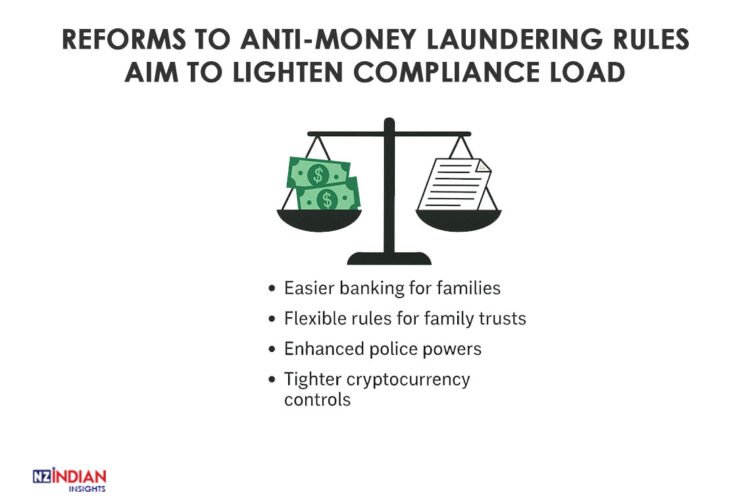New regulatory changes are on the horizon as the government prepares to fine-tune its approach to tackling financial crime. The adjustments are aimed at reducing the procedural burden for everyday individuals and small enterprises, while strengthening the country’s ability to combat illicit financial activity.
Authorities have announced that updated legislation targeting money laundering and terrorism financing will be rolled out in phases—some changes expected to be enacted within months, with the remainder scheduled before the current term concludes.
The revisions are designed to strike a better balance between security and practicality. Under the new approach, processes involving property held in family-style trusts are expected to become more flexible. Previously, such transactions often involved lengthy checks that could delay property sales for weeks or even months. Going forward, entities that present low financial risk may not require such exhaustive documentation, streamlining property transfers for both sellers and agents.
Additionally, law enforcement agencies will gain stronger tools to intervene when suspicious financial activity is detected, allowing faster account freezes. The circulation of digital currencies will also be more tightly regulated, including the removal of certain cryptocurrency access points.
Efforts are also underway to simplify how banking services are accessed by families, particularly in situations involving guardians opening accounts for minors. These small but significant changes are intended to reduce friction in routine financial tasks without compromising oversight.
To improve efficiency, a centralized body will take over regulatory supervision, consolidating functions previously spread across multiple financial institutions. This shift is expected to enhance consistency in enforcement, though some industry groups may require support in adapting to new compliance models—particularly in cases where larger operations will assume responsibility on behalf of multiple smaller units, such as in franchise structures.
Support from the business community has been generally positive, with many welcoming the reduction in paperwork and compliance hurdles. Though financial crimes in sectors like real estate are not often visible at a surface level, authorities remain focused on eliminating pathways for illicit funds to enter the legitimate economy.
Overall, the direction of reform reflects a growing awareness that overly complex systems can hinder honest activity more than they help stop crime. The intent is to preserve safeguards where necessary while making everyday financial interactions simpler and more proportionate to actual risk.


















